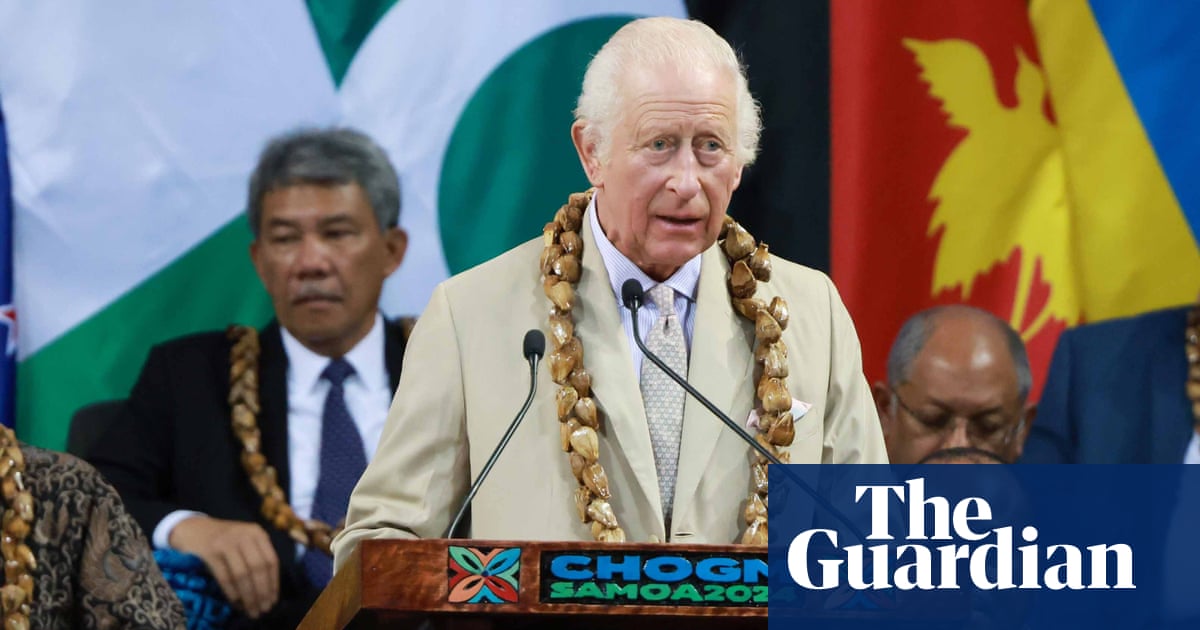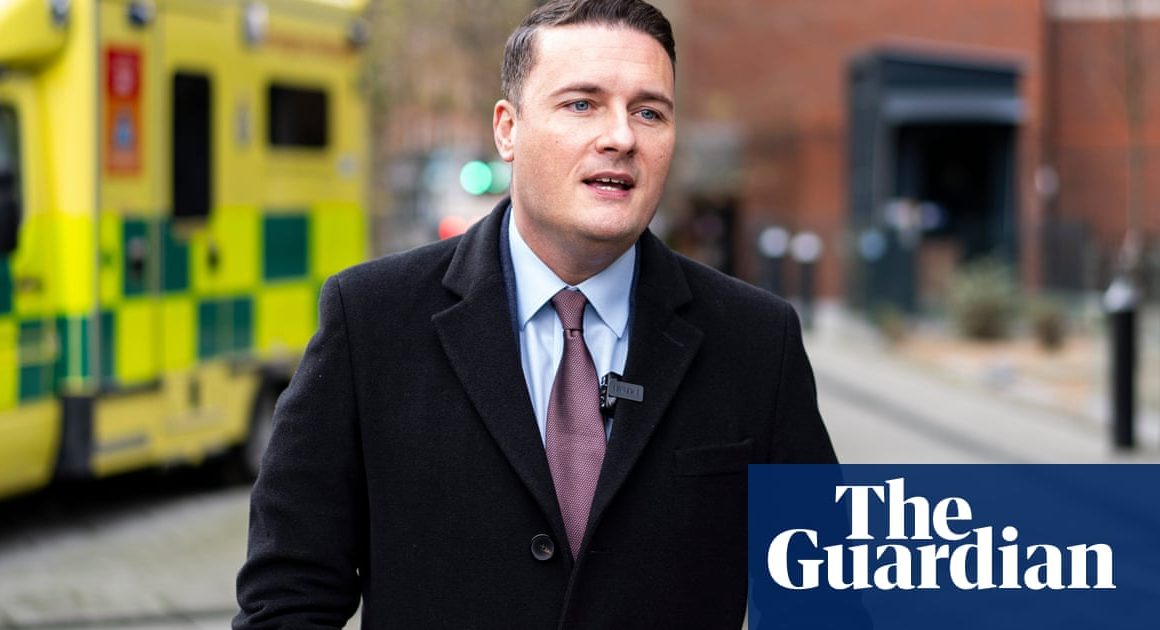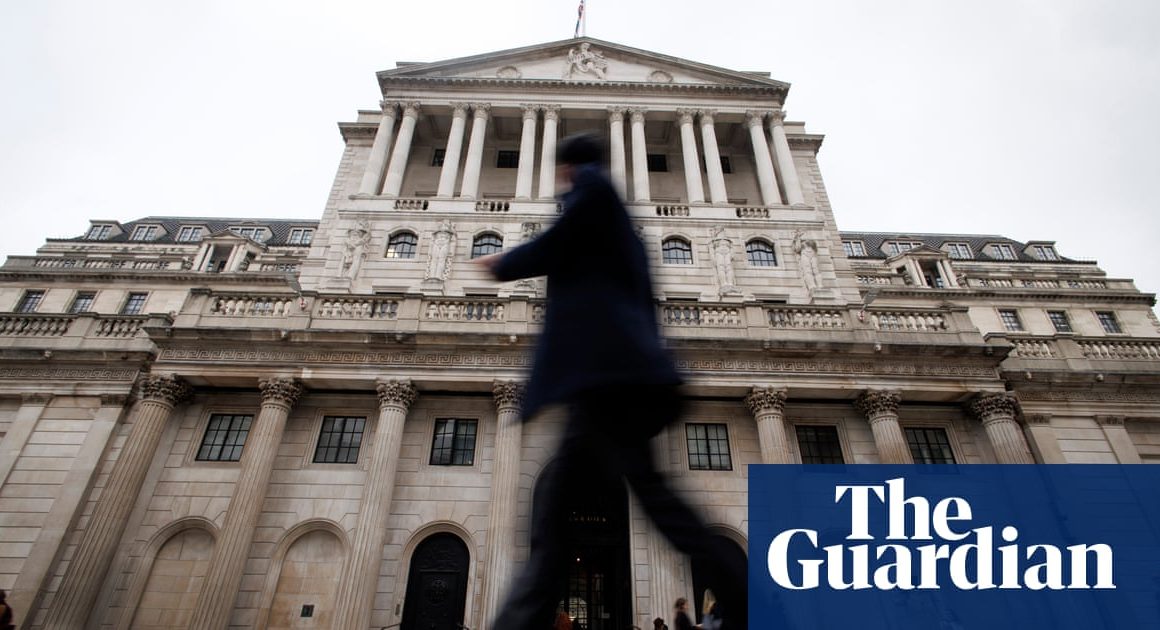King Charles acknowledged “painful aspects” of Britain’s past while sidestepping calls to directly address reparations for slavery at the summit of Commonwealth leaders, saying “none of us can change the past, but we can commit … to learning its lessons”.
Charles was speaking to leaders representing 56 Commonwealth nations at the Commonwealth heads of government meeting (Chogm) in the Pacific nation of Samoa, his first time attending the summit since taking the throne. In his speech, the king also addressed the climate crisis, development challenges and paid tribute to Queen Elizabeth.
Some leaders attending Chogm had hoped that Charles might use his address as an opportunity to issue an apology for Britain’s colonial past, and that this year’s summit would commit to a discussion on the topic of reparatory justice. Charles seemed to acknowledge the concerns of leaders, but did not directly engage with the issue.
“I understand from listening to people across the Commonwealth how the most painful aspects of our past continue to resonate. It is vital therefore, that we understand our history to guide us to make the right choices in the future,” he said.
“Where inequalities exist … we must find the right ways and the right language to address them. As we look around the world and consider its many deeply concerning challenges, let us choose within our Commonwealth family, the language of community and respect and reject the language of division.”
There have been calls from some African and Caribbean nations for Britain – and other European powers – to pay financial compensation for slavery.
The Bahamas’ prime minister Philip Davis told AFP that a debate about the past was vital.
“The time has come to have a real dialogue about how we address these historical wrongs,” he said.
“Reparatory justice is not an easy conversation, but it’s an important one,” Davis said. “The horrors of slavery left a deep, generational wound in our communities, and the fight for justice and reparatory justice is far from over.”
On Thursday, British prime minister, Keir Starmer appeared to open the door to non-financial reparations for the UK’s role in the transatlantic enslavement, as he came under pressure from Commonwealth leaders to engage in a “meaningful, truthful and respectful” conversation about Britain’s past.
While Starmer has ruled out paying reparations or apologising for the UK’s role in the transatlantic slave trade, a Downing Street source indicated that the UK could support some forms of reparatory justice, such as restructuring financial institutions and providing debt relief. They also accepted that some reference to reparations was likely to be included in the end-of-summit communique.
Responding to Starmer’s decision to discuss “non-financial” reparations, the St Vincent and the Grenadines (SVG) prime minister, Ralph Gonsalves – who was one of the founding leaders of the current reparations committee – stressed the importance of a reparative justice plan that addressed the enduring psychological and socioeconomic impact of slavery.
Arguing that the British had committed genocide against and traumatised both the Indigenous people and enslaved Africans in SVG, he added that while enslavers were compensated with millions at abolition, nothing was given to those who had been enslaved and oppressed.
“There was nothing for them to start with and build on – no land, no money, no training, no education,” he told the Guardian. This damaging legacy of enslavement and oppression, he added, has continued to plague Caribbean nations.
Patricia Scotland, the outgoing secretary-general of the Commonwealth, also nodded to the concerns about colonial legacies in her speech at the summit’s opening, saying: “For 75 years, we have demonstrated an unparalleled ability to confound the painful history which brought us together and sit together as equals.”
Davis said the call for reparations “isn’t simply about financial compensation; it’s about recognising the enduring impact of centuries of exploitation and ensuring that the legacy of slavery is addressed with honesty and integrity.”
Joshua Setipa from Lesotho, who is one of three candidates vying to be the next Commonwealth’s secretary-general, said reparations could include non-traditional forms of payment such as climate financing.
“We can find a solution that will begin to address some injustices of the past and put them in the context happening around us today,” he said.
In his speech on Friday, Charles also paid tribute to Queen Elizabeth and her commitment to the Commonwealth, which he said “has helped to shape my own life for as long as I can remember.” It also took in development challenges and the climate crisis.
“Lives, livelihoods and human rights are at risk across the Commonwealth, I can only offer every encouragement for action with unequivocal determination … If we do not, then inequalities across the Commonwealth and beyond would only be exacerbated with the potential to fuel division and conflict.”










